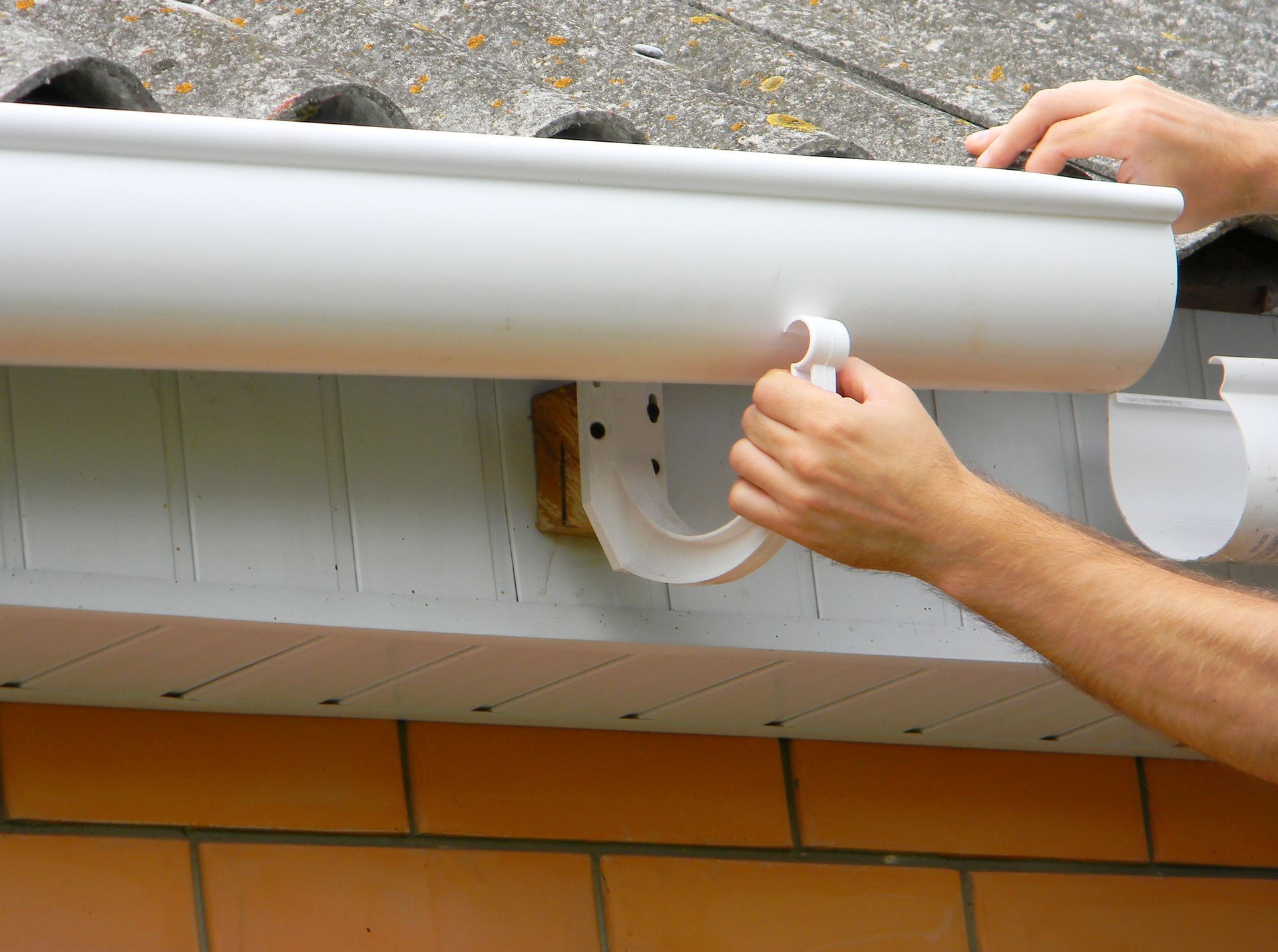Find the Right Electrical Contractor for Your Home Improvement Project
Ever struggled to locate the Big Dipper in Ireland’s night sky? Well, finding a reputable electrical contractor for your home improvement project can sometimes feel just as daunting. We’ve all heard chilling tales of botched projects, unfinished work or contractors vanishing into thin air! The good news? It doesn’t have to be like locating a star constellation anymore. With sage advice and the right protocols, you can confidently navigate the skies of home improvement – even when it comes to electrical upgrades – ensuring your match with a reliable provider is more than mere stargazing. Buckle up as we illuminate the pathway towards finding the perfect electrical contractor who won’t leave you in the dark!

Understanding the Role of an Electrical Contractor
Have you ever attempted a do-it-yourself electrical repair, only to find yourself in a worse situation than where you started? Electrical work is not only complicated, but it can be incredibly dangerous if not done correctly. This is where an electrical contractor comes in.
Essentially, an electrical contractor is a skilled professional who specializes in all aspects of designing, installing, and maintaining electrical systems. They play a critical role in ensuring that your home’s wiring and electrical components are safe and reliable.
An electrical contractor’s job goes beyond just fixing faulty outlets or installing new light fixtures. They are responsible for implementing complex systems that power our homes’ lighting and essential appliances. This includes circuits, wiring, panels, switches, and more.
One of the most significant roles that an electrical contractor plays is identifying potential safety hazards before they arise. Many homeowners tend to overlook the hidden dangers lurking within their home’s electrical systems, such as outdated wiring or overloaded circuits. A certified electrician will thoroughly inspect your home’s electrical system to identify any potential risks and make recommendations on how to mitigate them.
For example, let’s say that you live in a home built before 1960 and have never had your wiring updated. An experienced electrical contractor will know that older homes typically use aluminum wiring instead of copper. While aluminum was commonly used in the past due to its affordability, it has been found to be less safe than copper due to its higher propensity for causing fires and short circuits.
At Ireland Contracting LLC, our skilled electricians take pride in providing customized solutions that meet our customers’ unique needs. Whether you need us for repairs or installations, we aim to ensure that your home remains safe long after we’ve completed our work.
Range of Electrical Services
When it comes to home improvement projects that require specialized knowledge and experience – like those involving electricity – hiring an electrical contractor is crucial. An electrician can offer several services that are designed to ensure the safety of your home and family.
One of the most common services provided by electrical contractors is installation or repair of electrical equipment. This includes things like lighting fixtures, ceiling fans, and appliances. Whether you need a new light switch installed, or an entire rewiring of your home’s electrical system, a professional electrician will have the skills and experience necessary to get the job done right.
Another essential service that electrical contractors provide is safety inspections. Oftentimes, homeowners are unaware of potential dangers in their home’s electrical systems until it’s too late. By scheduling regular safety inspections with a certified electrician, you can identify potential hazards before they become problematic.
Electrical contractors also offer emergency services for situations where immediate repairs or replacements are necessary. Whether its power outages caused by storms or wiring issues that could result in fires, licensed electricians can quickly diagnose and fix the problem at hand.
For example, let’s say that you’re experiencing frequent power outages in your home due to an outdated circuit breaker panel. An experienced electrical contractor will be able to install a new panel with higher amperage, which will give you greater stability and safeguard against sudden surges.
At Ireland Contracting LLC, we offer a broad range of electrical services tailored to our clients’ needs. From installing outlets to complete remodeling projects, our team of experienced electricians has what it takes to deliver quality results on time and within budget.
Required Licensing and Certification for Electrical Contractor
When it comes to electrical work, ensuring that your contractor is properly licensed and certified is crucial. This helps guarantee that your project will be completed safely and up to code. The specific requirements for licensing and certification vary by state, but certain standards are universal.
For example, to obtain a license, an electrical contractor
must pass an exam that tests their knowledge of the National Electric Code, as well as local regulations. They must also have a certain amount of experience in the field. This ensures that they have a solid understanding of how electrical systems work and how to install them correctly.
In addition to licensing, certification from organizations such as the Electrical Training Alliance or the International Association of Electrical Inspectors can demonstrate that a contractor has gone above and beyond in their training. It’s a good idea to ask your potential contractor what certifications they hold, as this can indicate their level of expertise in specific areas of electrical work.
For instance, if your project involves solar panel installation or other renewable energy sources, look for a contractor with specialized certifications in those areas. They’ll have a greater knowledge of these systems and may be better equipped to handle any challenges that arise during installation.
Another important aspect of certification is ongoing education. Electrical codes change frequently, so it’s crucial to work with a contractor who stays up to date on these changes through regular training courses and continuing education programs.
It’s also worth noting that some states require bonding for electrical contractors. Bonding is essentially an insurance policy that protects against any damage or losses caused by the contractor. While not all states require bonding, it’s still something to consider when evaluating potential contractors.
Evaluating Electrical Contractor Credentials
When choosing an electrical contractor for your home improvement project, it’s important to do your research and thoroughly evaluate their credentials. Here are a few key factors to consider:
First and foremost, verify that the contractor you’re considering is properly licensed and insured. This can usually be done through a quick online search on your state’s licensing board website or by asking the contractor directly for proof of licensing and insurance.
Keep in mind that not all contractors will have the same level of insurance coverage. For example, some may only have liability insurance, which covers damage they cause to your property. Others may also have workers’ compensation insurance, which covers injuries sustained by the contractor or their employees while working on your property. It’s best to work with a contractor who has both types of insurance to ensure maximum protection.
In addition to verifying licensing and insurance, it’s a good idea to check references and read reviews from previous clients. Ask the contractor for a list of references you can speak with directly to get an idea of their quality of work and professionalism.
You can also read reviews on websites like Yelp or Angie’s List to get an idea of what other customers have experienced when working with the contractor. Keep in mind that no contractor will have 100% positive reviews, so focus on trends in the feedback rather than individual negative comments.
Another important factor to consider is how well the contractor communicates and responds to inquiries. Are they prompt in answering phone calls and emails? Do they take the time to explain the project details clearly? Do they seem open to answering questions and addressing any concerns you may have? Ideally, you want to work with a contractor who values clear communication as much as you do.
Finally, make sure that the scope of work is clearly outlined in the contract. This should include specifics such as the timeline, materials to be used, and payment schedule. A reputable contractor will take the time to explain the contract to you and make sure you understand everything before signing.
Licensing and Insurance Verification
When hiring an electrical contractor for your home improvement project, it’s important to ensure that they meet the necessary licensing and certification requirements. A licensed contractor will have the proper training, knowledge, and experience to perform electrical work safely, effectively and in compliance with local building codes.
One way to verify a contractor’s license is to check with your state’s licensing agency. They can provide you with information on the required license and any complaints or violations filed against the contractor.
It’s also crucial to ensure that the contractor carries liability insurance and workers’ compensation coverage. Liability insurance protects you from any damage caused by the contractor during the project, while workers’ compensation covers any injuries sustained by the contractor’s employees while working on your property.
Without insurance, you as the homeowner could be held responsible for any damages or injuries, which can result in significant financial loss. Asking for proof of insurance should be a standard part of your contractor evaluation process.
Additionally, bonding is another form of protection that ensures that if a contractor does not complete a job as outlined in the contract, a bond may be used to compensate you for losses or damages incurred as a result.
Before hiring an electrical contractor, be sure to obtain proof of licensing, insurance and bonding. This can protect both you and the contractor from any potential legal issues down the road.
Checking References and Reviews
Once you have verified a contractor’s licensing and insurance, it’s important to check references and reviews from previous clients. This can give insight into their reliability, professionalism, and quality of work.
One way to find referrals is to ask family members, friends or real estate agents who may have worked with an electrical contractor in the past. Online review websites such as Yelp or Angie’s List are also helpful resources for checking testimonials from previous clients.
Anecdotal evidence shows that personal recommendations from trusted sources are often the most reliable and can offer a level of comfort when deciding who to hire for your project.
When checking reviews, it’s important to look for patterns of both positive and negative feedback. Be wary of contractors with consistently negative reviews on several websites, as this could indicate a problem that may arise during your own project.
You can also request references directly from the contractor and ask them about their experience working with the contractor. This can give you a good sense of what to expect in terms of professionalism, communication and work quality.
However, it’s important to keep in mind that not all reviews are genuine, and some may be biased or fake. It’s crucial to evaluate each review critically and look for consistent themes or specific details that support the claims made in the review.
One way to spot fake reviews is to look for generic language or repetitive phrasing without specific details about the contractor’s work or their experience. If there are similar types of complaints across multiple reviews without any significant variation, it could also indicate potential issues with the contractor’s workmanship.
Comparing Estimates from Electrical Contractors
When it comes to home improvement projects that require electrical services, comparing estimates from different electrical contractors is key. However, it’s not just about finding the lowest price; you also want to ensure that the estimate includes all necessary services and materials to complete the project safely and effectively.
For instance, one contractor may quote a lower price for installing new lighting fixtures but fail to include the cost of wiring or circuit upgrades required for the installation. Another contractor may charge more but offer a comprehensive estimate that covers all aspects of the project, including potential extras like permits, inspections, or cleanup fees.
To accurately compare estimates from different electrical contractors, ask for detailed written estimates that outline all work to be completed and their associated costs. Be wary of estimates that offer vague descriptions of services or lump multiple tasks into one pricing category without itemizing them. Without a clear breakdown of costs, you could end up with unexpected additional expenses down the road.
Comparing electrical contractor estimates can be akin to shopping for a car. You wouldn’t purchase a vehicle based solely on the cheapest sticker price without considering factors like fuel efficiency, safety ratings, and service plans. Similarly, don’t make your decision solely based on the lowest-priced estimate without thoroughly reviewing what services are included in that cost.
Once you have obtained several estimates and compared them against each other, it’s time to make sure everything is in writing through a detailed contract.
The Importance of a Detailed Contract
A detailed contract is crucial for residential electrical work as it clearly defines what work is going to be done, who will do it, what materials will be used and how much it will cost. A well-written contract outlines every aspect of the job from start to finish which can prevent disputes between homeowners and electrical contractors.
For instance, if your project involves adding new electrical outlets to a room, a detailed contract would specify the number and placement of the outlets, the type of wiring to be used, and how any necessary drywall repairs or painting will be addressed. A specific timeline for completion could also be included in the contract to ensure that both parties have a clear understanding of when the work will start and finish.
Without a detailed contract in place, homeowners may find themselves vulnerable to potential legal disputes or unexpected expenses. By clearly outlining what is agreed upon between both parties, there is less room for miscommunication or disagreements.
Furthermore, some contractors may attempt to complete additional work beyond the scope of the original contract without obtaining homeowner consent. This situation can easily be avoided by having a detailed written agreement in place that clarifies what work will be completed for the agreed-upon price.
Having a detailed contract is like having a roadmap to your destination. Before embarking on any journey, you want to know exactly where you’re going, how you’ll get there, and what you’ll need along the way. Similarly, before starting any major home improvement project involving electrical work, homeowners should have a clear understanding of what services will be provided, how much it will cost, and when it will be completed.
Scope of Work Clarification
Before you sign any contract and write a check for your electrical project, it is essential to have a clear understanding of the scope of work that will be conducted by the electrical contractor. Ask the contractor to provide a detailed outline of what will be done, including the timeline and the materials required. This information will help you compare quotes and ensure that you are getting a fair price for the services provided.
For example, if you hired an electrical contractor to install new lighting fixtures in your home’s living room, they should explain how many fixtures will be installed, where they will be installed, and what type of bulbs they will use. If they are adding additional outlets or light switches, make sure they specify where these will go as well.
Clarifying the scope of work also reduces misunderstandings. Both parties should know exactly what is expected before any work begins. Without clear instructions, technicians may not complete tasks properly or follow any specific guidelines. A lack of details can also cause potential excuses from the contractor for additional costs.
Some homeowners leave much of the decision-making up to their contractors due to inexperience or lack of time to deal with the minor details. However, this can sometimes lead to suboptimal outcomes (which may have been avoided). Moreover, without paying attention to each detail, it’s difficult to evaluate whether the contractor has made good decisions about materials and quantity for your budget.
Requesting a detailed scope-of-work guideline up front ensures that everyone is on the same page so that all parties involved have a clear direction as work proceeds. It also provides customers with enough proof that their expectations are set forth in writing should any undesirable outcome surface.
Clear Payment Terms and Warranties
Having clarity in payment terms and warranties is crucial before starting an electrical project; this is because it helps both homeowners and electrical contractors understand how they will be paid for their work, when they will receive payment, and what kind of guarantees surround the job. It also outlines the consequences of breach of contract.
Consider payment terms like a recipe – precise and comprehensive instructions ensure that you don’t miss any steps, get the right ingredients in the right quantities, and produce a tasty result. Payment schedules, deposit amounts, invoice details, and late fees should all be well-defined and explicitly understood by both parties before an agreement is reached.
Warranties serve as essential safeguards for workmanship quality. Substandard installations or deficient materials adversely affect the homeowner. They cause extended maintenance costs and repair expenses down the line. Electrical contractors who may offer warranties on their work generally tend to have more confidence in their work than those who do not.
You might come across some shady sales representatives who offer ridiculously cheap services that come without any warranty or decent guarantee policy. Keep in mind that such warranties are expressed directly relating to the value placed on your money by those representatives?
At Ireland contracting, our aim has always been customer satisfaction; therefore, we offer HomeAdvisor’s most outstanding guarantee – The Service Guarantee: In short, if there are any issues with installation after we leave your property, we make every effort to correct them at no additional cost, provided there were no changes made to the original project scope agreed upon.
By understanding an electrical contractor’s warranty coverage and important payment terms upfront, you can protect yourself from unexpected costs while gaining peace of mind surrounding your property’s electrical system improvements.
The post Find the Right Electrical Contractor for Your Home Improvement Project appeared first on Ireland Contracting.







Share On: